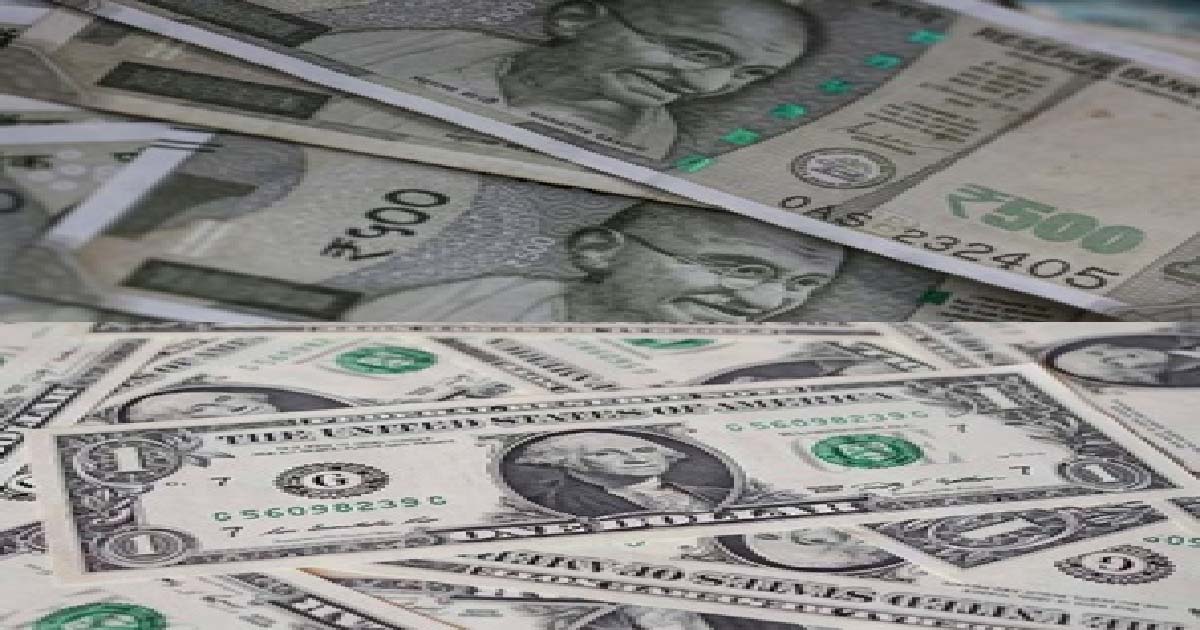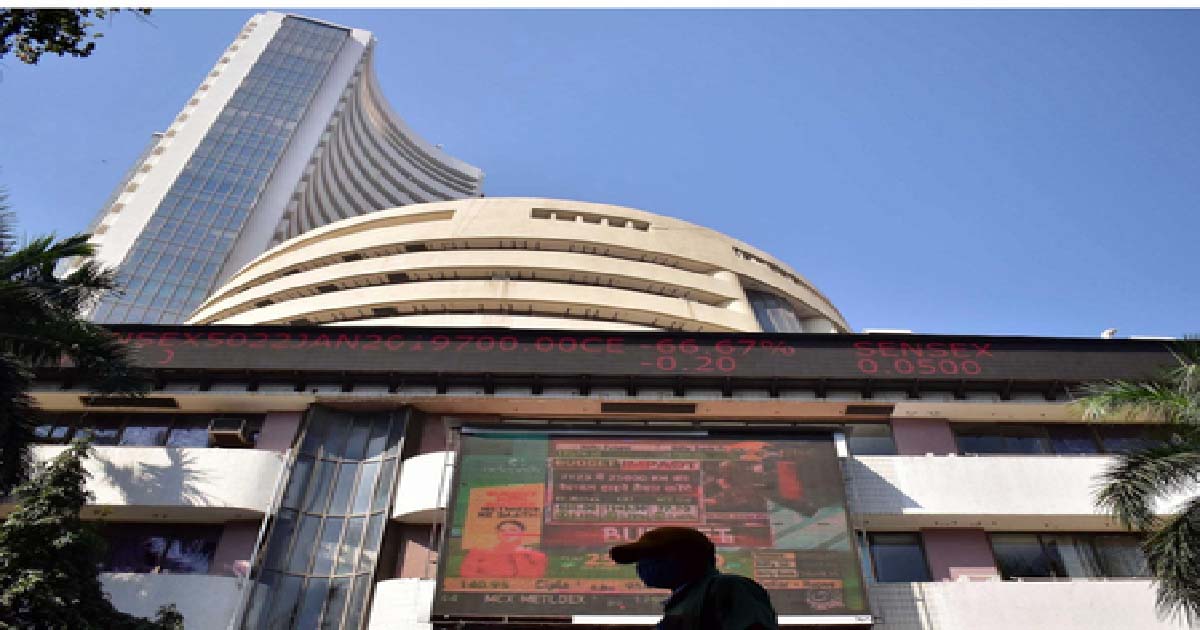Business
Economic slowdown: Sitharaman calls for ‘proactive collective efforts’ by G-20

Finance Minister Nirmala Sitharaman has called for “proactive collective efforts” by the G-20 group of the world’s top economies to deal with the current slowdown in the growth momentum of the global economy.
Addressing fellow ministers and central bank heads of the G-20 member countries, the minister attributed the slowdown to “prolonged inflation, supply chain disruption, volatility in energy markets and investor uncertainty”, according to a series of Twitter posts by the Ministry of Finance.
Sitharaman, who is in Washington DC for the Spring Meetings of the World Bank Group (which includes the International Monetary Fund), said G-20 “is well placed to catalyse international policy coordination to deal with macroeconomic consequences and called for proactive collective efforts towards protecting economies”, according to the Finance Ministry.
The 2022 April Spring Meetings are taking place amidst a significant slowdown in the global economy, whose recovery from the adverse effects of the Covid-19 pandemic was rudely halted by the Russian invasion of Ukraine and the economic upheaval it has caused.
The IMF estimates that the “global growth will slow down from an estimated 6.1 per cent in 2021 to 3.6 per cent in 2022 and 2023. These are 0.8 and 0.2 percentage points lower for 2022 and 2023 projections in the January World Economic Outlook Update. Beyond 2023, global growth is forecast to decline to about 3.3 per cent over the medium term. This projection is based on the assumption that the conflict will remain confined to Ukraine further sanctions on Russia exempt the energy sector (although the impact of European countries’ decisions to wean themselves off Russian energy and embargoes announced through March 31, 2022, are factored into the baseline), and the pandemic’s health and economic impacts abate over the course of 2022”.
India’s growth projections have also been cut by both the fund and the World Bank. The fund said India will grow by 8.2 per cent in 2022, down 0.8 percentage points from 9 per cent as projected in January, which in itself was down 0.5 percentage points form its previous projection. The World Bank has projected 8 per cent growth for the Indian economy in 2022 in a report released last week.
The Finance Minister is holding meetings on the sidelines of the World Bank Group events, with counterparts from around the world and corporate leaders.
Sitharaman and US commerce secretary Gina Raimondo discussed “ways to strengthen economic cooperation in the bilateral and global contexts”, the ministry said in a tweet. She also met counterparts from the Netherlands and Suriname.
The Finance Minister pitched India to the US semiconductor industry in a meeting with John Neuffer, president and CEO of the Semiconductor Industry Association. She informed Neuffer of the “initiatives & policies rolled out by the Government of India (GoI) to attract & support foreign investment in semiconductor industry, including development of sustainable semiconductor and display ecosystem with an outlay of $10 billion, in India”, the ministry said.
Neuffer was described as being “upbeat” about the initiatives taken by GoI to promote investment in Semiconductor ecosystem and appreciated India’s commitment to become a reliable player in the global supply chain.
Business
Indian rupee likely to bounce back strongly in 2nd half of next fiscal: SBI report

New Delhi, Dec 17: Geopolitical uncertainties driven by the delay in the India-US trade deal have been the single-most important reasons for the rupee sliding against the US dollar, an SBI Research report said on Wednesday, adding that the rupee is likely to bounce back strongly in the second half of the next fiscal.
India’s trade data shows the remarkable resilience in navigating through prolonged uncertainty, more protectionism and labour supply shocks.
“While the geopolitical risk index has moderated since April 2025, the current average value of the index for April-October 2025 is much greater than its decadal average, which indicates how much pressure global uncertainties are exerting on INR,” State Bank of India’s (SBI) Group Chief Economic Advisor, Dr Soumya Kanti Ghosh, said.
Dr Ghosh further stated that consistent with their empirical analysis, “the rupee is currently in a depreciating regime and is likely to exit it”.
After breaching the psychologically important mark of 90 per US dollar, the rupee crossed the 91-level on Tuesday.
However, the rupee staged a sharp recovery on Wednesday, trading as strong as 90.25 during the day, as the cooling of crude prices also contributed to improved sentiment.
According to the SBI report, the data also indicates that the current fall is the quickest (in terms of number of days) of the rupee, scaled to 5 per USD. In less than a year, the rupee has slid from 85 to 90 per dollar.
The current slide appears to be primarily driven by FPI outflows, chiefly equities (after two years of robust inflows) and uncertainty regarding the US-India trade deal.
Since April 2, 2025, when the US announced sweeping tariff hikes across economies, the Indian rupee (INR) has depreciated by 5.7 per cent against USD (most amongst the major economies), notwithstanding sporadic phases of appreciation owing to optimism over the US-India trade deal.
“While INR is the most depreciated currency, it is not the most volatile. This clearly indicates that the 50 per cent tariff imposed on India is one of the major factors behind the current phase of rupee depreciation,” the SBI report noted.
Business
Indian markets hit fresh highs in November, outshine global peers: Report

Mumbai, Dec 17: Indian equity markets touched fresh all-time highs in November and clearly outperformed global markets, a new report said on Wednesday.
The data compiled by PL Asset Management said India emerged as a bright spot at a time when many global markets struggled due to weak technology stocks, fading enthusiasm around artificial intelligence and soft economic data from China.
The report noted that record-low inflation, steady domestic growth and reasonable valuations improved the overall outlook for investors.
“While global markets remained uneven, India benefited from strong local demand, supportive liquidity and a predictable policy environment,” the report said.
Inflation played a major role in boosting market sentiment during the month. Consumer price inflation fell sharply to just 0.25 per cent, the lowest level on record and far below the Reserve Bank of India’s target of 4 per cent.
This sharp fall strengthened expectations of further interest rate cuts, which supported equity valuations. Reflecting confidence in the economy, the RBI raised its GDP growth forecast for FY26 to 7.3 per cent.
India also recorded strong GDP growth of 8.2 per cent in the second quarter of FY26, reinforcing its position as the fastest-growing major economy in the world, the report said.
Domestic economic indicators remained healthy despite global challenges. Manufacturing activity stayed strong, even though exports were slightly affected by tariffs.
Goods and Services Tax collections remained robust at Rs 1.70 lakh crore, as per the report.
Festive season spending also supported growth. In addition, India’s current account deficit improved to 1.3 per cent of GDP.
Global markets, meanwhile, showed signs of fatigue. US technology stocks faced profit booking, China and Hong Kong markets weakened due to poor economic data, and investors turned to precious metals for safety.
Crude oil prices softened amid expectations of interest rate cuts by the US Federal Reserve. Against this global backdrop, India’s stable fundamentals helped it continue to outperform.
Siddharth Vora, Head – Quant Investment Strategies & Fund Manager, PL Asset Management, said, “Indian markets continue to demonstrate relative resilience at a time when global risk assets are undergoing a phase of recalibration.”
Business
Centre releases over Rs 260 crore for rural local bodies in Kerala

New Delhi, Dec 15: The government on Monday said it has released Rs 260.20 crore to rural local bodies in Kerala as part of the 15th Finance Commission grants for the financial year 2025-26.
The amount represents the first instalment of untied grants and covers all 14 district panchayats, 152 block panchayats and 9,414 gram panchayats (GPs) in the state, according to an official statement.
Untied grants are meant to be utilised by rural local bodies/PRIs for location-specific felt needs under the 29 subjects listed in the Eleventh Schedule of the Constitution, except for salaries and other establishment expenditures.
Tied Grants, on the other hand, are earmarked for basic services relating to sanitation and maintenance of ODF (open defecation-free) status, including management and treatment of household waste, human excreta and faecal sludge, and supply of drinking water, rainwater harvesting, and water recycling.
Last week, the government released Rs 717.17 crore to strengthen rural local bodies in Maharashtra as part of the first instalment of untied grants for the financial year 2025-26. The funds were released to duly elected and eligible rural local bodies in the state, covering two district panchayats (Zilla Parishads), 15 block panchayats (panchayat samitis), and 26,544 gram panchayats.
The government, through the Ministry of Panchayati Raj and the Ministry of Jal Shakti (Department of Drinking Water and Sanitation), recommends release of 15th Finance Commission grants to states for Panchayati Raj Institutions, which are then released by the Ministry of Finance.
The allocated grants are recommended and released in two instalments in a financial year.
Earlier in November this year, the Centre released over Rs 223 crore for rural local bodies in Assam and another Rs 444.38 crore to strengthen panchayat bodies in Odisha as part of the 15th Finance Commission grants.
-

 Crime3 years ago
Crime3 years agoClass 10 student jumps to death in Jaipur
-

 Maharashtra1 year ago
Maharashtra1 year agoMumbai Local Train Update: Central Railway’s New Timetable Comes Into Effect; Check Full List Of Revised Timings & Stations
-

 Maharashtra1 year ago
Maharashtra1 year agoMumbai To Go Toll-Free Tonight! Maharashtra Govt Announces Complete Toll Waiver For Light Motor Vehicles At All 5 Entry Points Of City
-

 Maharashtra1 year ago
Maharashtra1 year agoFalse photo of Imtiaz Jaleel’s rally, exposing the fooling conspiracy
-

 National News1 year ago
National News1 year agoMinistry of Railways rolls out Special Drive 4.0 with focus on digitisation, cleanliness, inclusiveness and grievance redressal
-

 Maharashtra1 year ago
Maharashtra1 year agoMaharashtra Elections 2024: Mumbai Metro & BEST Services Extended Till Midnight On Voting Day
-

 National News1 year ago
National News1 year agoJ&K: 4 Jawans Killed, 28 Injured After Bus Carrying BSF Personnel For Poll Duty Falls Into Gorge In Budgam; Terrifying Visuals Surface
-

 Crime1 year ago
Crime1 year agoBaba Siddique Murder: Mumbai Police Unable To Get Lawrence Bishnoi Custody Due To Home Ministry Order, Says Report












